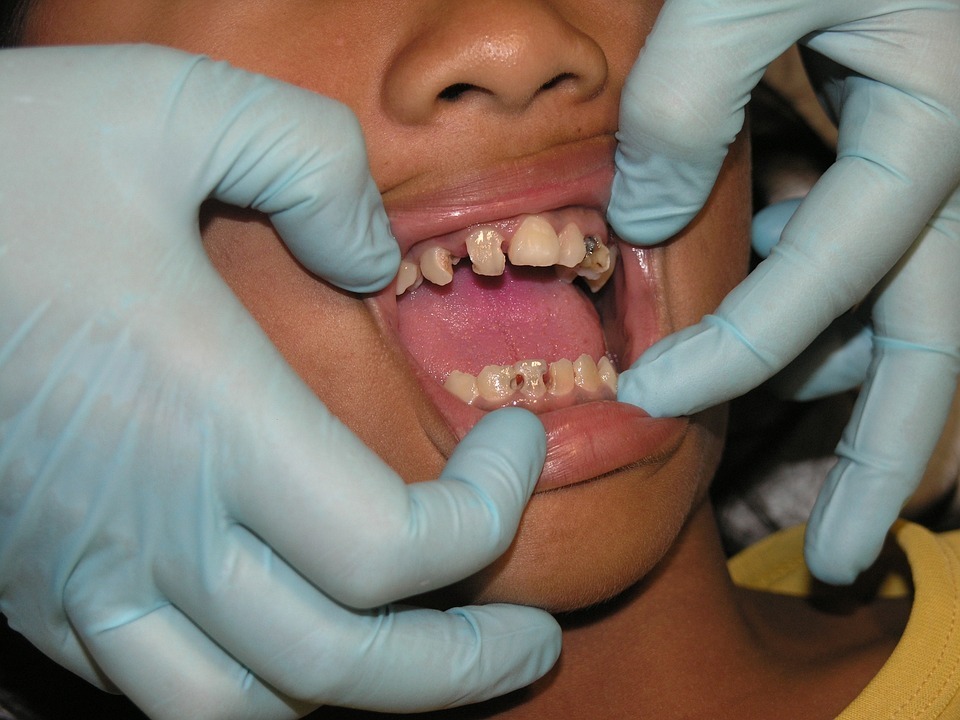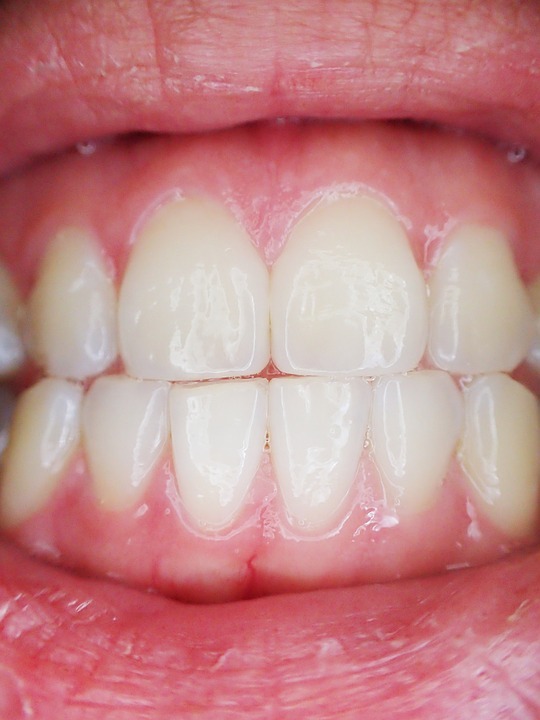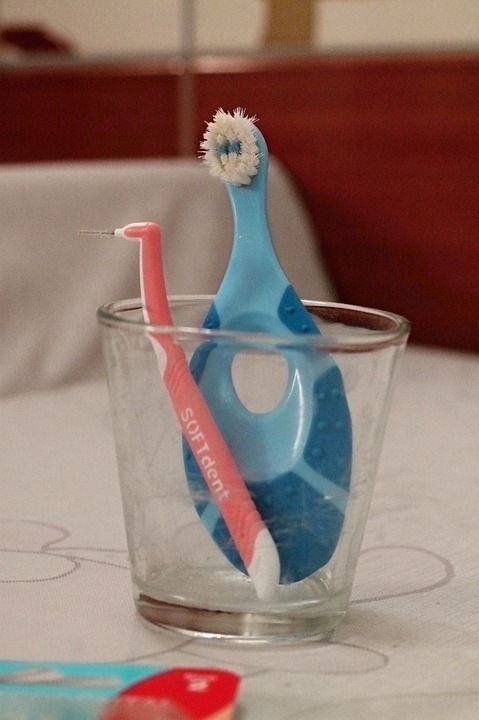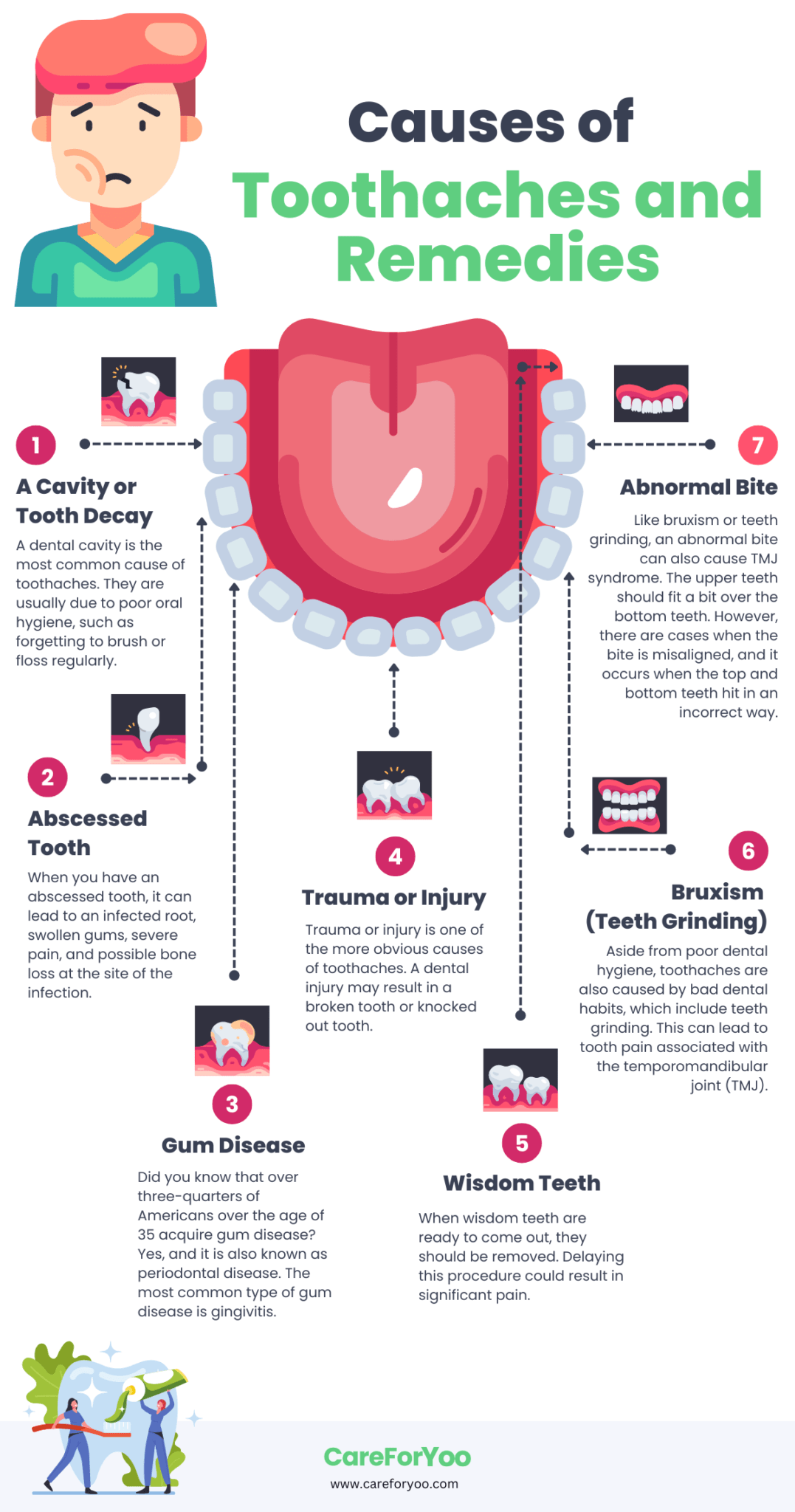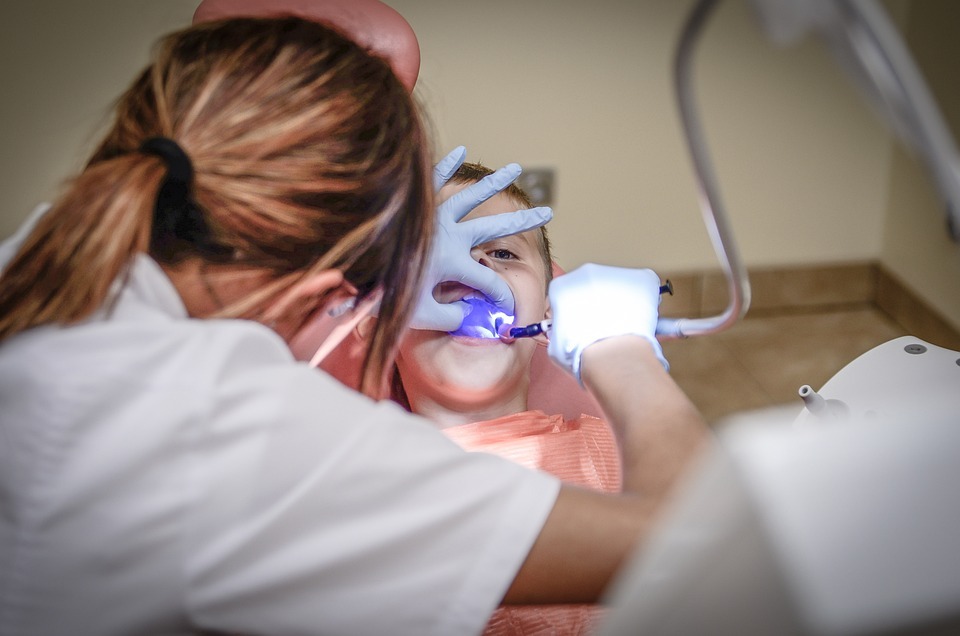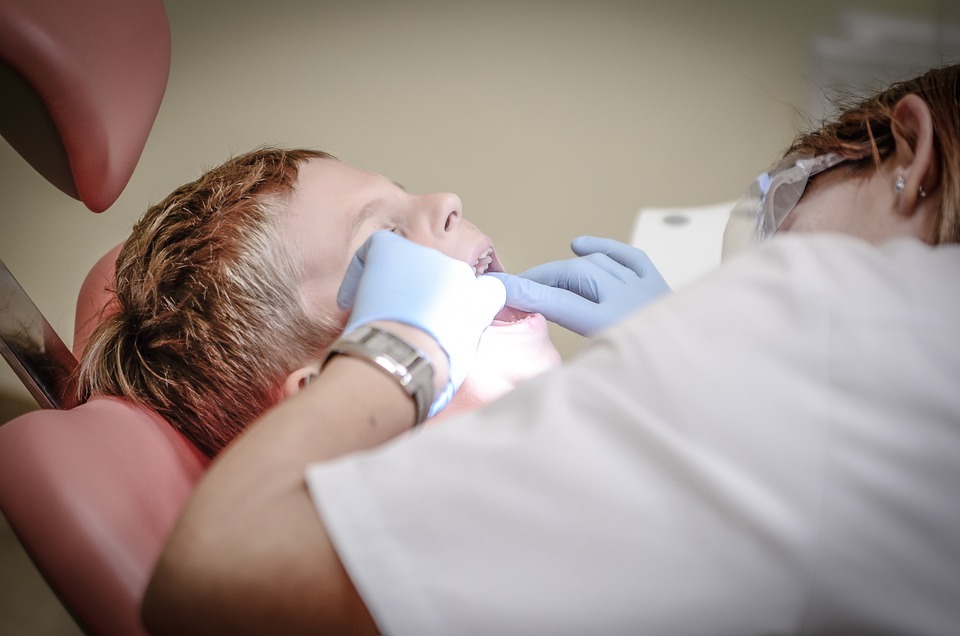Good oral health is a vital part of overall health and wellbeing, particularly among children. As any parent knows, teaching children about proper hygiene is an essential part of their development. As such, encouraging good teeth-brushing habits and regular visits to the dentist at an early age is the key in making sure your child has healthy teeth and gums.
Toothache in kids can be truly debilitating. It usually means missing out on the fun of childhood. Toothache, or a pain in or around the teeth and gums, is one of the most common dental ailments in kids. While caring for your child’s dental health can help to prevent them from experiencing a toothache, it can still occur due to certain conditions, such as cavities, gum diseases, and infections.
Knowing what causes this ailment can help you take preventive measures and seek medical help in time before it becomes unbearable for the little ones. In this post, we will cover the most common causes of toothache in kids, including cavities, gum diseases, and infections. It contains tips on what to do if your child starts complaining of toothache and how to prevent it from happening in the first place.
Common Causes of Toothache in Kids
Toothache in kids can be caused by a variety of factors, be it decay, disease, injury, or inflammation. Let’s look at the most common causes of children toothache.
Cavities and Tooth Decay
The most common cause of toothache in kids is cavities and tooth decay. They are caused by a bacterial infection of the teeth.
Poor oral hygiene practices such as inadequate brushing and flossing, too much sugar consumption, or inadequate fluoride exposure, enables acid and bacteria to attack the enamel on teeth. The protective layer around the teeth wears out, leading to cavities and decay.
If cavities remain unchecked, they can cause pain when eating and drinking as well as difficulty sleeping due to the discomfort.
Tooth Abscesses
A tooth abscess is a pocket of pus that forms around or inside a tooth due to infection. It occurs when bacteria accumulate around the root of the tooth. This is usually caused by advanced tooth decay or an injury to the tooth or gums. If left untreated, this infection can spread and lead to pain, swelling, and other symptoms such as fever or bad breath.
Gum Disease and Inflammation
Gum disease (or periodontal disease) is an inflammatory process that affects the tissues and bone supporting the teeth. It is caused by plaque buildup in the area between the teeth and gums due to inadequate oral hygiene practices or hormonal changes.
It can cause pain when eating or drinking as well as tenderness in the gums. The tenderness is often accompanied by other symptoms such as inflammation, swelling, bleeding, and gum recession.
Tooth Eruption and Growth
The eruption of baby teeth can also cause pain and discomfort to your little one. During eruption, new teeth push through the gums creating pressure on adjacent teeth or bone structures. This pressure can also lead to discomfort as well as redness, swelling, and tenderness in the affected area. Similarly, during growth spurts, the jawbone undergoes some changes that can cause soreness in the jaw joints and other tissues
Trauma to Teeth
Toothache may also be caused by trauma to the teeth or gums due to accidents. It can occur due to an accident or injury such as biting down on something too hard or falling while playing. This can range from mild injuries such as chipped or cracked teeth to more severe ones which may require dental treatment. Pain resulting from this type of injury may be sudden and severe, lasting for days after the incident occurs.
Symptoms of Toothache in Kids
Since a toothache can completely disrupt your little one’s lifestyle, knowing about its symptoms in advance can help you be prepared.
Pain and Discomfort
One of the most common symptoms of toothache in kids is pain and discomfort in or around the affected tooth or area. This can range from mild sensitivity or aching to sharp pain when biting down on something hard or eating something hot or cold. It may come on suddenly and can be mild to severe in intensity depending on what’s causing it.
It’s important to note that even if you don’t see any visible signs of damage to a tooth (such as a crack or chip), if there’s an internal issue such as an abscess or cavity, it can still cause pain.
Sensitivity to Hot or Cold Temperatures
If your child experiences sensitivity when drinking hot or cold beverages or eating cold food items, this could indicate an underlying issue with one of their teeth. The sensitivity could range from mild discomfort to sharp pains that linger for several seconds after consuming anything hot or cold.
Swelling or Redness in the Gums
Another symptom of a potential underlying issue with a tooth is swelling or redness around the gums near said tooth. This could be caused by gum disease or an abscess, both of which will require treatment from your dentist right away in order to prevent further complications.
Swelling around the affected area usually occurs due to infection. There may also be redness at the site of infection as well as bleeding in gums when brushing or flossing.
Difficulty Eating or Drinking
Children with a sore tooth may find it difficult to eat foods that require biting down hard. This is because the pain they experience intensifies while chewing. Depending upon the location of the infected tooth, they may also experience difficulty drinking while sipping through a straw or due to sensitivity to cold temperatures.
Prevention of Toothache in Kids
Because of their debilitating effect on kids, it is essential to try to prevent toothaches from occurring in the first place. Here are some tips to help you out:
Proper Oral Hygiene Practices
Making sure your child follows good brushing habits from an early age is essential for maintaining their dental health. This means brushing at least twice a day for two minutes with fluoride toothpaste for kids over 3 years old (always supervise young children during their brushing). Flossing once per day will also help ensure their teeth stay clean by removing any bits of food stuck between teeth, which cannot be reached by brushing.
Along with brushing and flossing, good oral hygiene habits also include drinking enough water throughout the day, reducing intake of sugary foods and drinks. They are all essential for preventing cavities and reducing risks for other ailments associated with poor oral hygiene such as gum disease and abscesses.
Regular Dental Check-ups and Cleanings
Visiting a dentist for regular check-ups and professional cleanings is also important for detecting any problems early on. A dentist can screen for issues such as decay, gum disease, misaligned bites, dental traumas, etc., recommend appropriate treatment solutions for toothache and provide personalized guidance on how to improve oral hygiene practices at home.
Watch What They Eat
Eating healthy foods high in calcium such as milk, yogurt, and cheese helps keep teeth strong and give them what they need for proper growth and development. Limiting sugary foods and drinks, on the other hand, is also the key here. Sugar feeds bacteria which can lead to cavities and other issues such as gum disease if left unchecked. Cotton candy, for example, may make their taste buds tingle, it is bad for their oral health. You’ll be surprised to learn that this sweet snack was actually introduced by a dentist. You can learn about the origins of cotton candy here.
Eating a balanced diet with fewer sugary foods and drinks also helps reduce the risks for dental caries and other ailments related to poor oral hygiene practices. It helps keep your child’s teeth healthy and strong.
Treatment of Toothache in Kids
There are several approaches towards treating toothache in small children. What will work for your kiddo depends upon the type of toothache they are having.
Pain Management Techniques
Pain management techniques such as applying cool compresses on the affected area or taking over-the-counter medications such as ibuprofen (if approved by your doctor) can help temporarily relieve the pain. You can administer these to reduce your child’s discomfort until you’re able to take them to their dentist for further assessment and treatment.
Antibiotics for Infections
For cases where there is an infection present such as with an abscessed tooth or advanced decay, your dentist may prescribe antibiotics. These will help fight off any harmful bacteria and should start working within one to two days. They help reduce inflammation and fight off bacterial infections causing pain and discomfort in your child’s mouth.
Dental Procedures
Depending on the severity of the problem and its underlying causes, a dentist may recommend certain procedures such as fillings for cavities, extractions for abscessed teeth or root canals for infected root structures. All these procedures are done under local anesthetic so there shouldn’t be any major discomfort during these procedures.
Importance of Early Intervention
Early intervention helps prevent further damage and complications which could make treatments more complicated and costly. It also allows dentists to address any problems promptly before they worsen over time.
Taking your child to the dentist right away if they experience any kind of dental issue helps prevent things from getting out of hand. It also gives their bodies time to heal naturally before more extreme treatments, like root canal or extractions become necessary.
It is also important to promote good oral habits from an early age. If your little one develops these habits early on, they will most likely carry it throughout their lifetime. It will help ensure they maintain a healthy and happy teeth both now and later in life.
Conclusion
Toothache in children is common and can be very painful. Knowing the common causes and symptoms of toothache in children is essential to enabling parents to take the appropriate steps to prevent it, detect it early, and seek treatment if they do experience a toothache.
Regular brushing and flossing, visiting the dentist regularly, limiting sugary foods and drinks, and seeking early intervention when a toothache occurs are all important steps to ensuring good oral health. By staying informed and following these simple tips, parents can help their children have healthy, happy smiles and avoid the pain of toothache.

